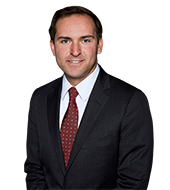Judge Connolly Issues Three New Orders Impacting Patent Cases
Background
The Honorable Colm F. Connolly, of the United States District Court for the District of Delaware, recently issued a series of three standing orders that affect patent cases filed in the District. The orders include: (i) changes to the Form Scheduling Order for Non-Hatch Waxman Patent Cases (Form Scheduling Order); (ii) the disclosure of third party litigation funding arrangements; and (iii) changes to the 7.1 Disclosure Statement.
Analysis
Revised Scheduling Order
Revisions to the Form Scheduling Order were extensive and range from benign to significant. In order of likely importance to litigants, the changes include:
Summary Judgment Ranking Procedures
In an effort to deter meritless dispositive motion practice, a party filing multiple summary judgment motions will be required to number the motions based on the order in which it wants them to be reviewed by the Court. The Court will review the motions in the order designated, and if the Court denies a summary judgment motion, it will not, “barring exceptional reasons determined sua sponte by the Court,” review any further summary judgment motions filed by the party. The Standing Order notes that exceptions to this general rule will be rare, for example where the denial of the previous motion was a very close call.
Ranking Required for Daubert Motions and Loss of Trial Time for Daubert Challenges Not Carried Through to Trial
Parties must also rank their Daubert motions:
- (e) Ranking of Daubert Motions. A party that files more than one Daubert motion shall number each motion to make clear the order in which the party wishes the Court to consider the motions in question. The first motion the party wishes the Court to consider shall be designated #1, the second motion shall be designated #2, and so on. The Court will review the party’s Daubert motions in the order designated by the party. If the Court decides to deny a motion filed by the party, barring exceptional reasons determined sua sponte by the Court, the Court will not review any further Daubert motions filed by the party.
Chief Judge Connolly also included a provision in the order stating that if the Court denies a Daubert motion and the party that brought the motion fails to cross-examine an expert on an issue raised in the Daubert motion, the Court may reduce, by an appropriate amount, the time allotted to that party at trial. Presumably, the Court is making the point that parties should not consume judicial resources by filing a motion on an issue that is not important enough to be raised at trial.
Phased Trials
The new form scheduling order defaults to a phased trial where issues related to infringement will be tried before the Court considers a trial on damages and/or willfulness.
26. Willfulness and Damages. Unless otherwise agreed to by the parties and the Court, the trial will be phased such that the issues of willful infringement and damages will be tried only if there is a finding of infringement.
Judge Connolly previously tested this approach in Dutch Branch of Streamserve Dev. AB v. Exstream Software, LLC, C.A. No. 08-343-SLR, 2009 U.S. Dist. LEXIS 76006, at *2 (D. Del. Aug. 26, 2009).
Dispositive Motion Deadline and Trial Date
In an effort to better manage the Court’s calendar and force parties to carefully consider the impact of changes to their scheduling order, Chief Judge Connolly adopted a policy where, if the parties stipulate to move their dispositive motion deadline, specifically extending the reply brief deadline, they will lose their trial date:
Important Note concerning Summary Judgment Motions
- Should the parties stipulate or otherwise request to have their dispositive motion deadline extended, and a trial date is currently set on the court’s calendar in the case, the parties will lose their trial date upon the court’s granting the extension. No new trial date will be given until the dispositive motion(s) have been decided.
By including this change, the Court has placed all counsel on notice and made it less likely that parties will inadvertently lose their trial date by extending the dispositive motion deadline.
Markman Schedule and Hearing Date
Continuing with the theme of tightly managing the case schedule, the new scheduling orders note that parties should assume they will lose their Markman hearing date if they stipulate to changing the deadline for submission of the joint claim construction brief:
- No later than [four weeks before the claim construction hearing], the parties shall file a Joint Claim Construction Brief. (Should the parties later stipulate or otherwise request to have this deadline extended, the parties will presumptively lose their claim construction hearing date upon the Court’s granting the extension.)
Disclosure of Litigation Funding
There have been extensive discovery disputes in all manner of cases (not just patent) related to third-party litigation funding arrangements. Chief Judge Connolly issued a new standing order that addresses this issue and limits the drain on judicial resources that discovery disputes on this issue have caused. Funding arrangements can be relevant, because if the third party funding source controls settlement or material litigation decisions, the named plaintiff may lack standing. The new standing order requires parties to disclose litigation funding sources and information in certain situations:
- In all cases assigned . . . where a party has made arrangements to receive from a person or entity that is not a party (a “Third-Party Funder”) funding for some or all of the party’s attorney fees and/or expenses to litigate this action on a non-recourse basis in exchange for (1) a financial interest that is contingent upon the results of the litigation, or (2) a non-monetary result that is not in the nature of a personal loan, bank loan, or insurance:
- a. The identity, address, and, if a legal entity, place of formation of the Third-Party Funder(s);
- b. Whether any Third-Party Funder’s approval is necessary for litigation or settlement decisions in the action, and if the answer is in the affirmative, the nature of the terms and conditions relating to that approval; and
- c. A brief description of the nature of the financial interest of the Third-Party Funder(s).
The new standing order goes on to note that parties may be entitled to additional discovery/disclosure if the litigation funder has a sufficient interest upon a showing that the Third-Party Funder has authority to make material litigation decisions or settlement decisions.
The new requirement applies to all cases, both plaintiff and defendants, and to issues other than just standing. Accordingly, a party may obtain discovery when “the interests of any funded parties or the class (if applicable) are not being promoted or protected by the arrangement,” and when the funding causes conflicts of interest.
Importantly, the funding disclosure requirement applies to existing cases and not just new cases. The disclosure deadline for existing cases is 45 days from entry of the order, or 2 June 2022.
Change to FRCP 7.1 Disclosures
Chief Judge Connolly also issued a new standing order covering FRCP 7.1, which applies only to his cases, that mandates additional disclosures that identify the ultimate owners for various entities and business ventures. Unlike the litigation funding order, there is no set deadline to file updated 7.1 statements. Rather, parties should “promptly file a supplemental statement if any required information changes.”
The new order updates FRCP 7.1 to require:
- In all cases assigned to Judge Connolly where a party is a nongovernmental joint venture, limited liability corporation, partnership, or limited liability partnership, [each] party must include in its disclosure statement filed pursuant to Federal Rule of Civil Procedure 7.1 the name of every owner, member, and partner of the party, proceeding up the chain of ownership until the name of every individual and corporation with a direct or indirect interest in the party has been identified.
Key Takeaways
As one of the busiest federal district courts in the country, particularly for patent litigation, the District of Delaware is constantly revaluating and improving the process for managing its caseload. It is imperative for counsel to remain aware of new standing orders, changes to existing standing orders and the chambers’ preferences for each of the district court judges. Failing to do so leaves counsel susceptible to negative consequences that can range from mild embarrassment to, as noted above, losing a trial date or the ability to pursue a summary judgment argument.
This publication/newsletter is for informational purposes and does not contain or convey legal advice. The information herein should not be used or relied upon in regard to any particular facts or circumstances without first consulting a lawyer. Any views expressed herein are those of the author(s) and not necessarily those of the law firm's clients.







